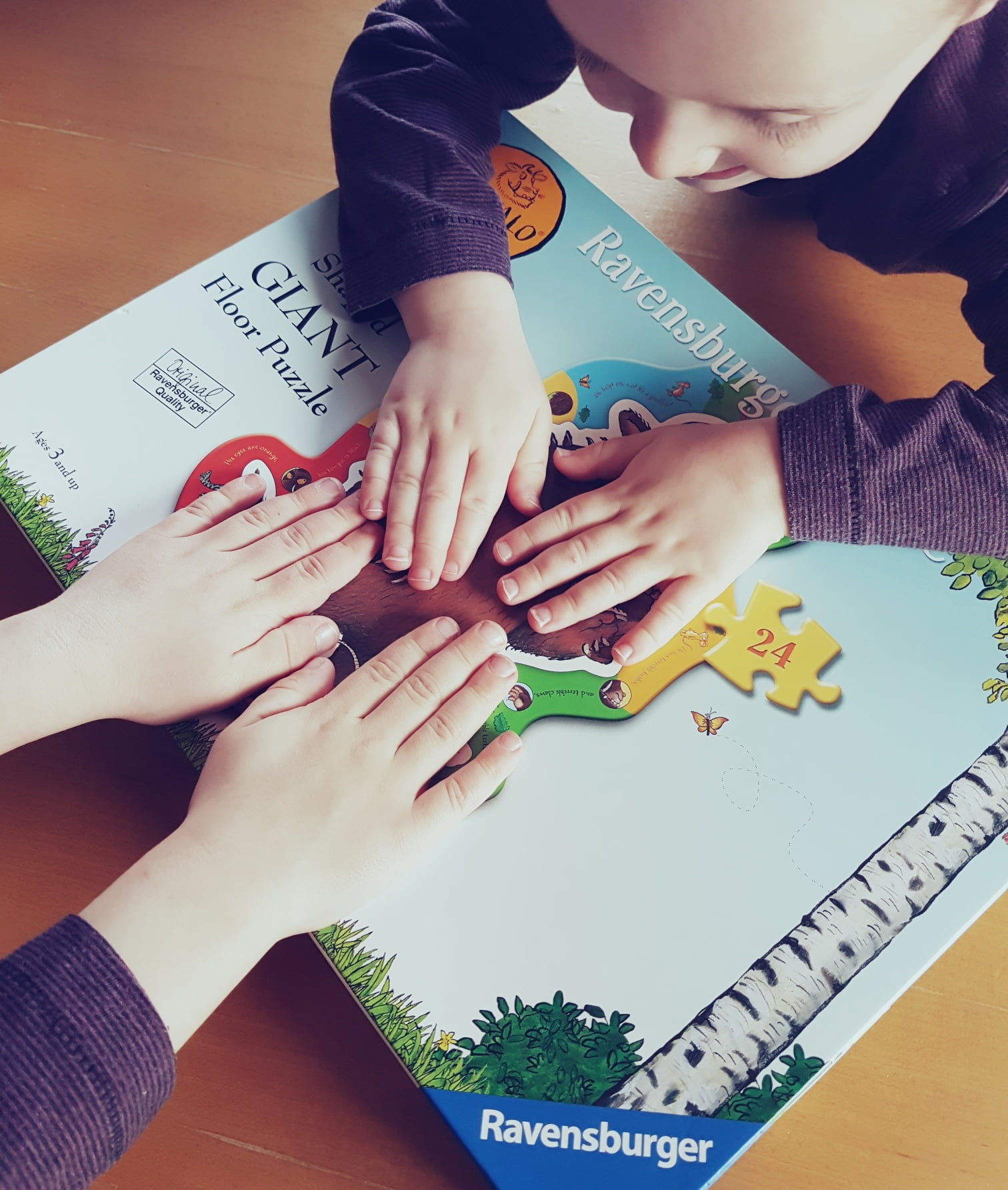Puzzles have the ability to send some parents into a frenzy. They can be bulky to store, the bits get everywhere and then what happens when you lose a piece?
As much as all of these things are true, puzzles have so many benefits for child development, they are worth sticking with. Our children love working together on a puzzle and the problem-solving nature of them.
Most recently the little boys have been tackling this 24 piece Gruffalo puzzle from Ravensburger. Ideal for Gruffalo fans like them, the puzzle is appealing and encourages children to tell the story of The Gruffalo in their own words.
There are so many benefits of puzzles for children, here are just a few of them.
Fine motor skills
Fine motor skills are vital for things like handwriting as children grow up. Doing puzzles can help to develop fine motor skills. The pincer grip is required to pick up puzzle pieces and children have to rotate the parts of the puzzle in their hands to find that perfect fit.
Shape recognition
Completing puzzles requires children to try and identify the piece of the puzzle that fits into a particular place. Learning to recognise and sort shapes is an important part of child development.
Hand-eye coordination
This is so crucial for so many things in life. Hand-eye coordination is required for day-to-day tasks like eating and drinking, as well as playing sports and all sorts of other tasks we might do every day.
Playing with puzzles encourages hand-eye coordination to develop, by encouraging the brain and hands to work together to solve the puzzle.
Problem solving
Being able to problem solve is not something everyone finds natural, even as adults. Puzzles are a great way to encourage children to develop good problem-solving skills early in their life.
The pieces in a puzzle either fit or they do not – you can’t cheat, so you have to learn to solve the ‘problem’.
Do your children enjoy puzzles? Have you noticed any skills they have developed from playing with puzzles?






1 comment
As a retired primary teacher I couldn’t agree more! I would add the life skills of perseverance and concentration too. If a puzzle is completed with a sibling or friend you can add sharing and co-operation to the list. Stories, puzzles and games are all lovely sociable activities that really aid a child’s social and emotional development.